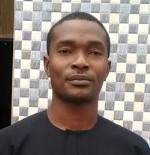responsible for the energy poverty in Sub-Sahara Africa
FEATURED PAPER
Dr. Reuben A Okereke, Tobechi B. Ejekwu, Victor O. Ohamma
Department of Quantity Surveying
Imo State University
Owerri, Nigeria
ABSTRACT
Poverty is the most fundamental reality of developing countries and the energy consumption patterns of poor people tend to add to their misery and aggravate their poverty. A direct improvement in energy services would allow the poor to enjoy both short-term and long-term advances in living standards. Required are energy strategies based on increasing the use of energy carriers other than biomass, or on using biomass in modern ways. Poverty alleviation and development depend on universal access to energy services that are affordable, reliable, and of good quality. For many years now, Nigeria as one of the Sub Saharan Countries has been facing extreme electricity shortage. This deficiency is multi-faceted, with causes that are financial, structural, and sociopolitical, none of which are mutually exclusive. For the purposes of this paper, after searching through copious amounts of literature, I was able to flesh out most of the financial and structural issues. With only this perspective, we naively attempted to compare cost projections for rural electrification, including both grid extension and decentralized methods. The projected costs are high but not so prohibitive as the current electrification statistics would suggest. We realized that there must be some aspect of the problem that cannot be reflected through numbers and official policies. The goal of this paper is not to solve the energy crisis of Sub Saharan Africa, but rather to introduce the depth and complexity of the issues involved. In the appendix, we describe various strategies that could be used to address the solution. The energy situation in Nigeria is quite different from that of the United States and other more developed countries. Yet alleviation of the global energy crisis will require a coordinated effort on the part of many nations. Thus, it is important to have a general understanding of the nature of problems in areas of the world less familiar to westerners.
1.0 INTRODUCTION
Human society cannot survive without a continuous use, and hence supply, of energy. The original source of energy for social activities was human energy—the energy of human muscle provided the mechanical power necessary at the dawn of civilization. Then came the control and use of fire from the combustion of wood, and with this, the ability to exploit chemical transformations brought about by heat energy, and thereby to cook food, heat dwellings, and extract metals (bronze and iron). The energy of flowing water and wind was also harnessed. The energy of draught animals began to play a role in agriculture, transport, and even industry. Finally, in rapid succession, human societies acquired control over coal, steam, oil, electricity, and gas. Thus from one perspective, history is the story of the control over energy sources for the benefit of society.
Modern economies are energy dependent, and their tendency has been to see the provision of sufficient energy as the central problem of the energy sector. Indeed, the magnitude of energy consumed per capita became an indicator of a country’s ‘modernization’ and progress. Energy concerns have long been driven by one simple preoccupation: increasing the supply of energy. Over the past few decades, however, serious doubts have arisen about the wisdom of pursuing a supply-obsessed approach. Attention is shifting towards a more balanced view that also looks at the demand side of energy. But access to, and the use of, energy continues to be a necessary and vital component of development.
Energy poverty in Africa calls for priority attention from the international community. Indeed, the region’s energy needs are huge, particularly in sub Saharan Africa, which has the lowest rate of electrification in the world – less than 30 percent, according to the UNDP Human Development Report 2007/2008. This rate is all the more unacceptable, when one realizes that the estimated population of sub-Saharan Africa is 16 percent of the world total. The sub-region depends largely on inefficient traditional biomass, used mainly for cooking and water-heating in households. Traditional biomass accounts for over 80 percent of primary energy demand. These sources of energy (firewood, charcoal and animal dung, for instance) burn inefficiently and give off noxious fumes, which can cause serious respiratory disease and even death. The surrounding environment is also degraded, through the depletion of forest resources…
More…
To read entire article, click here
How to cite this paper: Author last name, first initial (2020). Evaluation of Socio-Political factors responsible for the energy poverty in Sub-Sahara Africa; PM World Journal, Vol. IX, Issue V, May. Available online at https://pmworldlibrary.net/wp-content/uploads/2020/04/pmwj93-May2020-Okereke-Ejekwu-Ohamma-socio-economic-factors-for-energy-poverty-in-sub-sahara-africa.pdf
About the Authors

Dr. Reuben A. Okereke
Owerri, Nigeria
![]()
Q.S. Dr. Reuben A. Okereke, PhD QS & Sust. Dev., MSc. Const. Mgt., MSc. Env. Res. Mgt., FRQS, FIIA, FAPM, ACArb, CIPM, MAACEI., is a multi-talented and erudite scholar. A versatile professional with academic qualifications in Quantity Surveying, Project Management, Construction Management and Environmental Resource Management. His Quantity Surveying professional experience of almost three decades spans through his employment with consultancy and construction firms in Lagos, Nigeria, work as Project Manager in the Bank for eight years, services as in-house consultant Quantity Surveyor for several years for the Imo State University Owerri, Nigeria, experience as Consultant Quantity Surveyor in private practice as well as several years of teaching in both the University and Polytechnic. He is currently serving his second term as the head of department of Quantity Surveying, Imo State University, Owerri, Nigeria. He can be contacted at raphicaben2013@gmail.com

Tobechi B. Ejekwu
Owerri, Nigeria
![]()
Tobechi B. Ejekwu is a registered member of the Nigerian institute of Quantity Surveyors. He obtained his first degree in Quantity Surveying from the Imo State University Owerri, Imo State University, Nigeria with Second Class Upper Division. He bagged A Master’s Degree in Quantity Surveying from the same University with Upper credit. He is currently studying for a PhD in Quantity Surveying with interest in Life Cycle Costing of residential Buildings. He is currently a Lecturer in the Department of Quantity Surveying, Imo State, Owerri, Nigeria. He is an experienced Quantity Surveyor with industry footprint in many high profiled projects. Tobechi can be contacted at tobejekwu@gmail.com.

Victor O. Ohamma
Owerri, Nigeria
![]()
Victor O. Ohamma is a Probationer member of the Nigerian institute of Quantity Surveyors. He obtained his first degree in Quantity Surveying from the Imo State University Owerri, Imo State, Nigeria in 2009. He bagged Master’s Degree in Quantity Surveying from the same University with Upper credit. He is currently studying for PhD in Quantity Surveying with interest in achieving sustainable energy in Nigeria through photovoltaic (PV) technology; problems and prospects. He is an experienced Quantity Surveyor with industry footprint in many high profiled projects. Victor can be contacted at likemindz4good@yahoo.com









